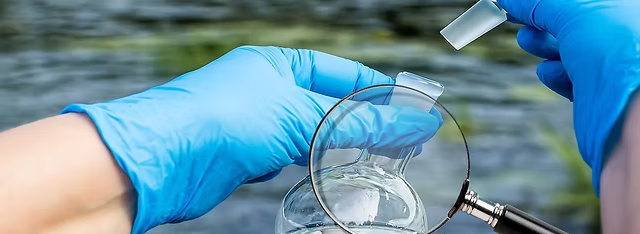For homeowners in rural areas or anyone considering buying a property outside the city, relying on a private water well is often part of the deal. While well water offers independence from municipal systems, it also comes with responsibility—regular well inspection is essential to ensure the water is clean, safe, and the system is working properly.
If you’re new to the idea of well ownership or considering a property that has one, this guide will walk you through the importance of well inspections, when to schedule them, what they involve, and how much they typically cost.
Why Is a Well Inspection Important?
A well inspection is a thorough evaluation of your well system, including its components and water quality. These inspections help identify potential problems—such as contamination, low water pressure, or mechanical failure—before they lead to bigger, more expensive issues.
Even if the water looks clean, it may still contain bacteria or other harmful elements. A professional inspection can provide peace of mind and ensure the well is safe for your family’s daily use.
Buying a Property with a Well? Get It Inspected First
If you’re in the process of purchasing a home that uses well water, a well inspection should be at the top of your to-do list—before closing. Although it’s not legally required in many states, skipping it could mean inheriting a system that’s unsafe or in need of costly repairs.
A thorough inspection can help you:
- Verify water quality
- Check the condition of the pump and pressure system
- Ensure the well meets local safety standards
- Identify potential contamination sources, like nearby septic tanks
Is a Well Inspection Similar to a Septic Inspection?
Not exactly, but they often go hand-in-hand. Many rural properties have both a well and a septic system. Since the septic tank is typically underground, it’s crucial to ensure that wastewater isn’t leaking into the groundwater supply.
During a well inspection, the inspector will often assess the well’s proximity to the septic system. If the well is located downhill from a septic tank or too close to it, the risk of contamination increases.
Scheduling both inspections together can save time and money while giving you a full picture of your property’s water and waste systems.
When Should You Schedule a Well Inspection?
If you already live in a home with a well, you should have it professionally inspected at least once a year. However, there are times when an inspection is especially important:
- Water smells bad or has a strange taste
- Water appears cloudy or has sediment
- You notice a sudden drop in water pressure
- The pump turns on and off more often than usual
- After a flood or heavy rainfall
- Before reopening a well that’s been unused
Catching these signs early helps prevent long-term damage and ensures your water remains safe.
What’s Included in a Well Inspection?
A standard well inspection includes both mechanical and water quality assessments. A certified inspector will typically examine:
Mechanical Components:
- Well casing and cap
- Grout and seals
- Submersible or jet pump
- Pressure tank and gauges
- Electrical wiring
- Control boxes and capacitors
Water Testing:
- Bacteria (such as coliform and E. coli)
- Nitrates and nitrites
- pH levels and hardness
- Sulfates, iron, and other minerals
Advanced inspections may also include checking water levels, flow rates, and pump efficiency to ensure the system is operating at optimal performance.
How Long Does a Well Inspection Take?
A full well inspection generally takes between 2 to 3 hours, including water sampling. While mechanical checks can be completed on-site, lab results for water quality may take a few days.
Once the results are in, you’ll receive a detailed report outlining the well’s condition, water safety, and any recommendations for repairs or treatment.
How Much Does a Well Inspection Cost?
The average cost of a well inspection ranges from $300 to $500, depending on your location and the complexity of the system. If water samples are sent to a lab, expect an additional fee—usually around $100.
Combining a well inspection with a septic system inspection often costs less than booking them separately. Many companies offer bundle pricing between $500 and $650 for both services.
Protect Your Health and Property with a Well Inspection
Regular well inspections aren’t just about preventing problems—they’re about protecting your health, home, and investment. Clean, safe water is essential for drinking, cooking, and bathing, and a properly maintained well ensures your system remains reliable for years to come.
Need a Reliable Well Inspection in South Florida?
At Guardian Angel Inspections, we’re proud to serve communities across South Florida with trusted, professional well inspections. As a licensed and insured home inspection company based in Royal Palm Beach, FL, we specialize in checking for contaminants, mechanical issues, and water quality concerns—without any hidden fees.
Let us help you keep your water safe and your home protected. Schedule your well inspection today!


